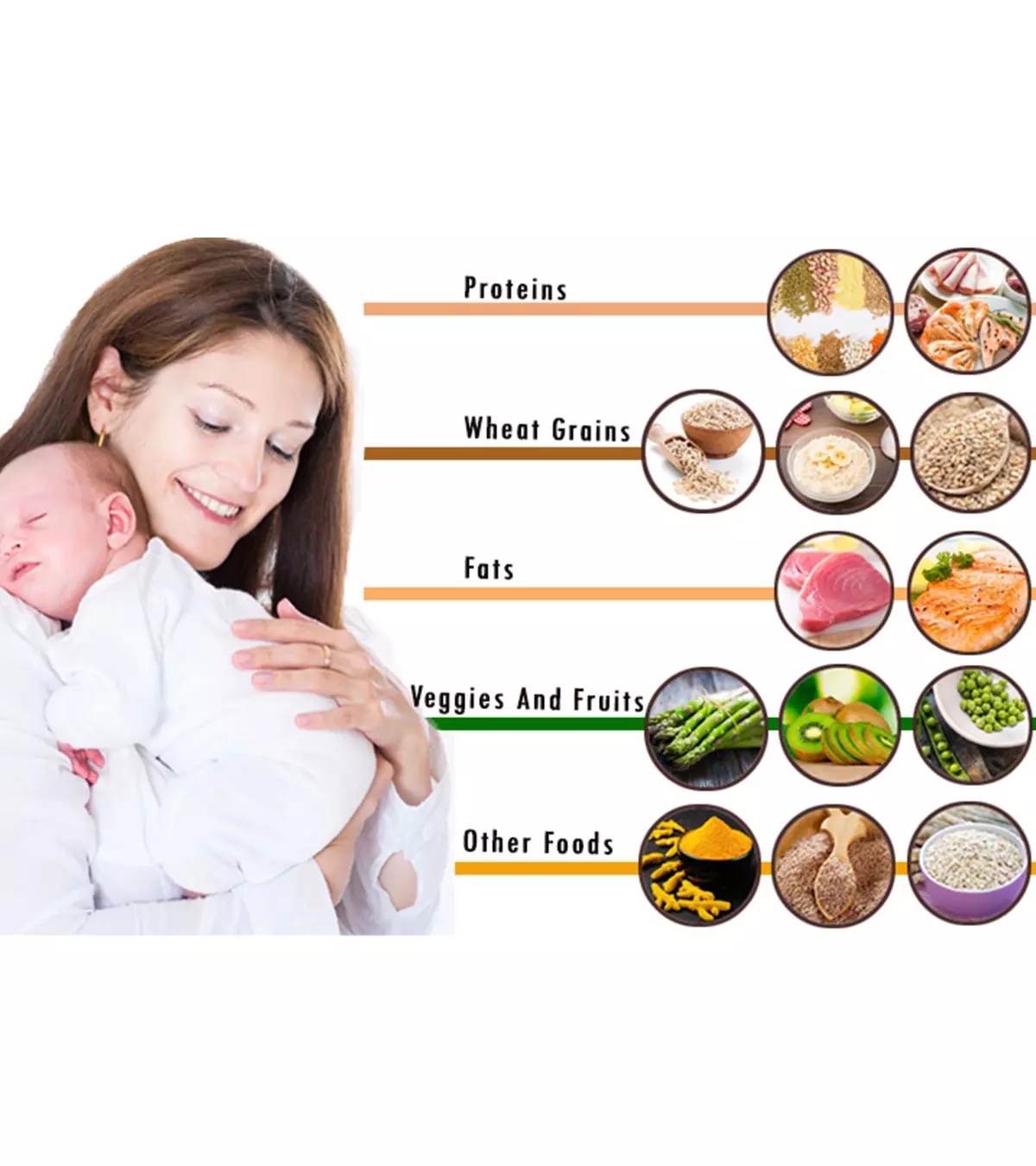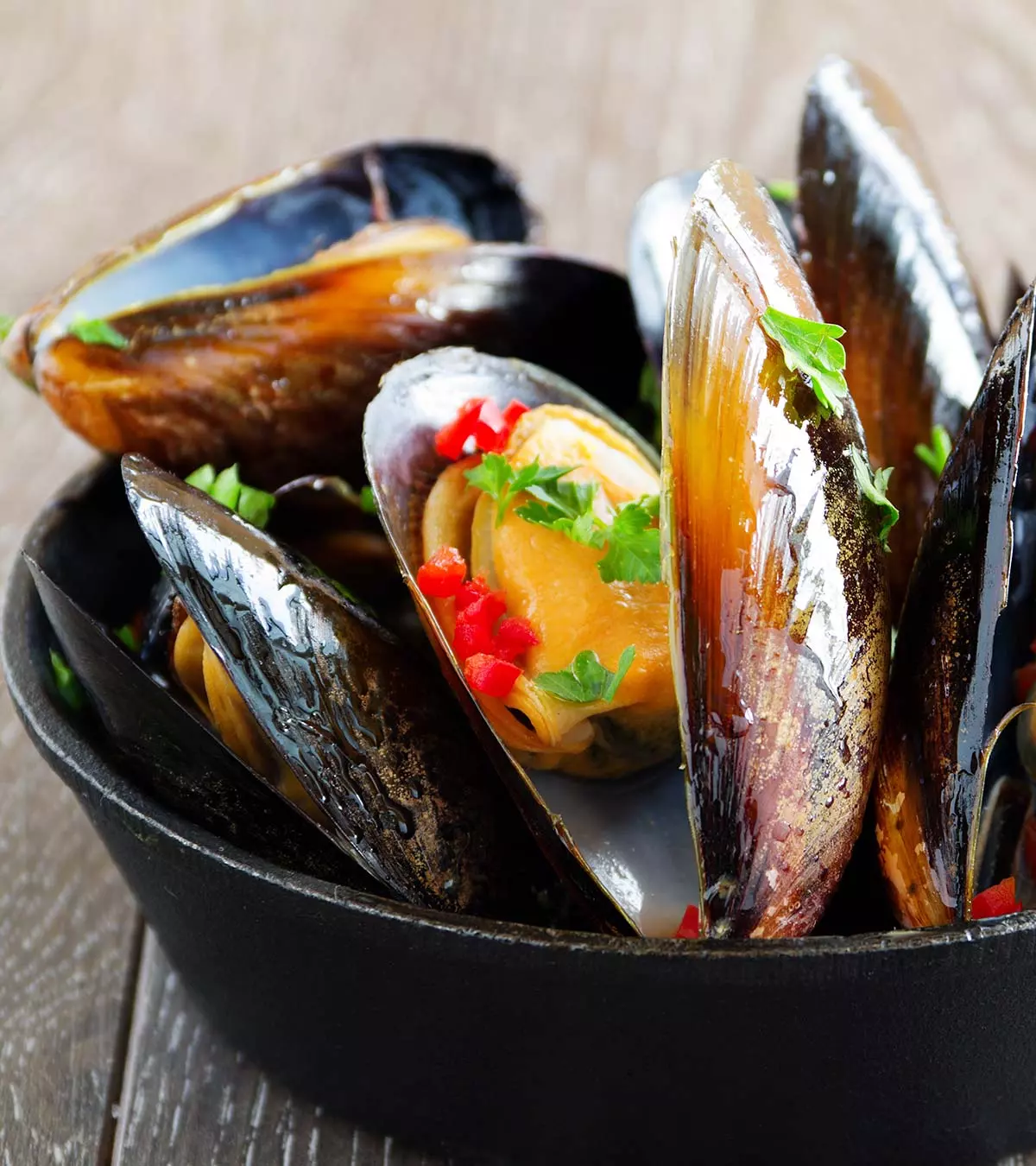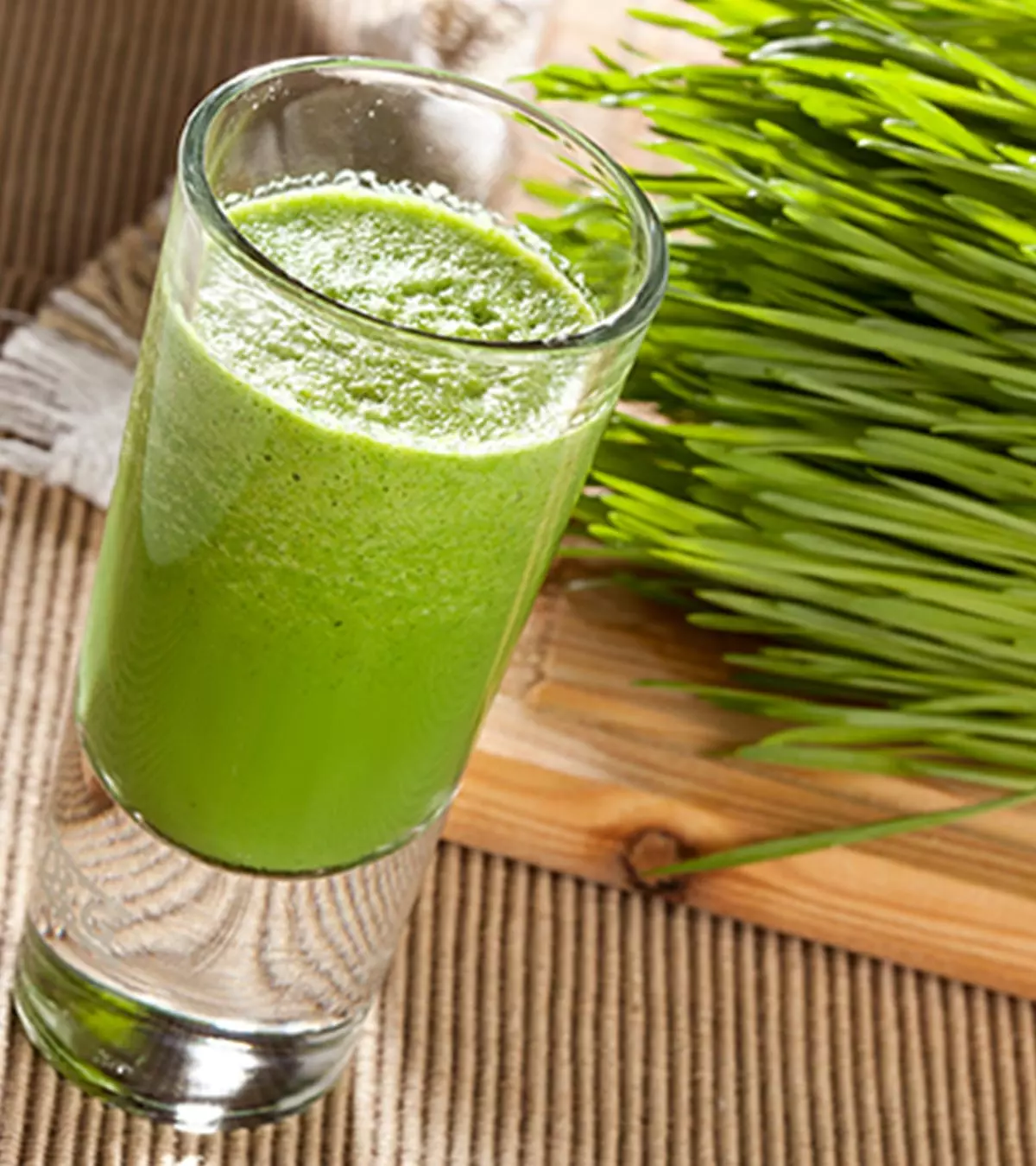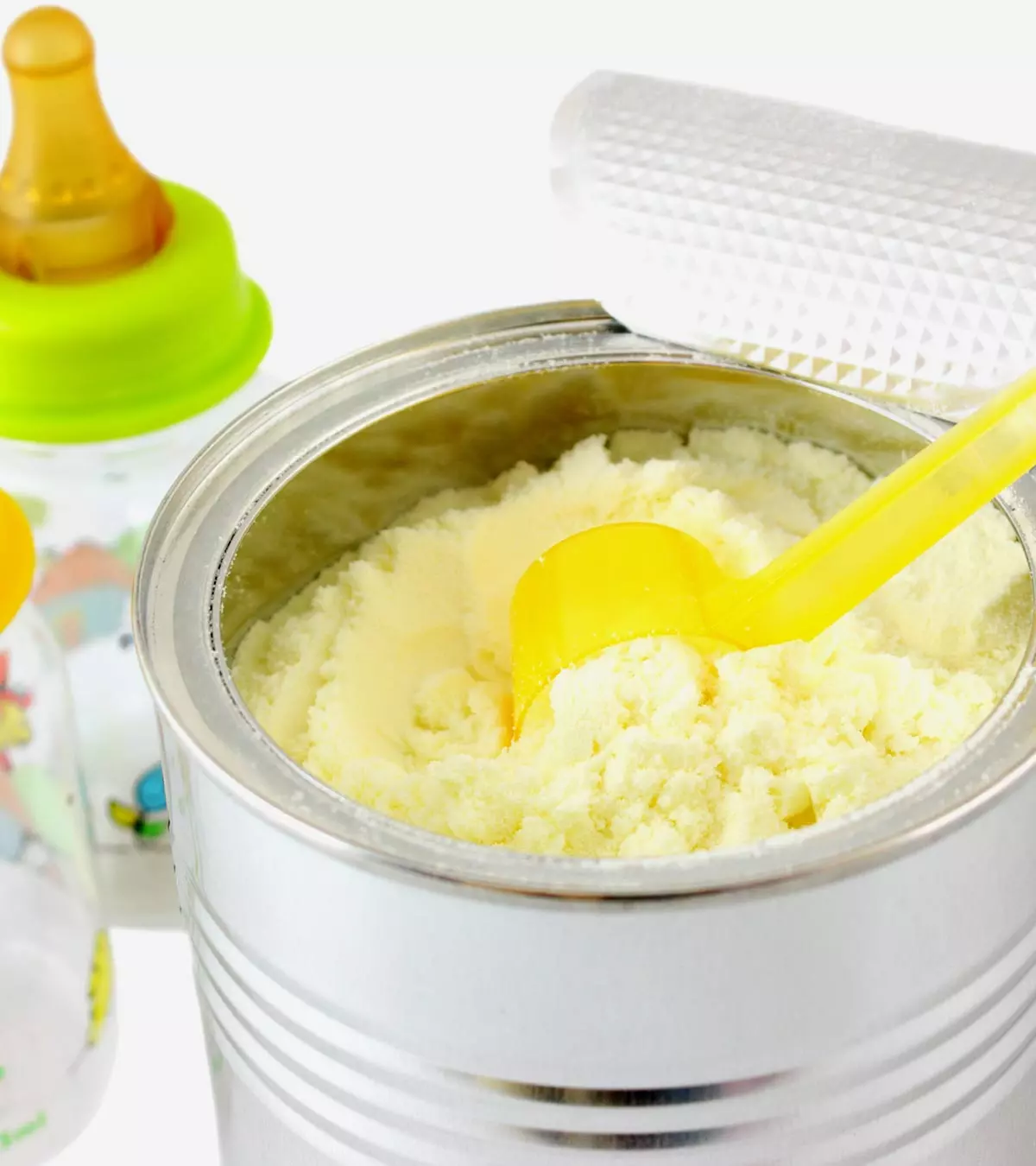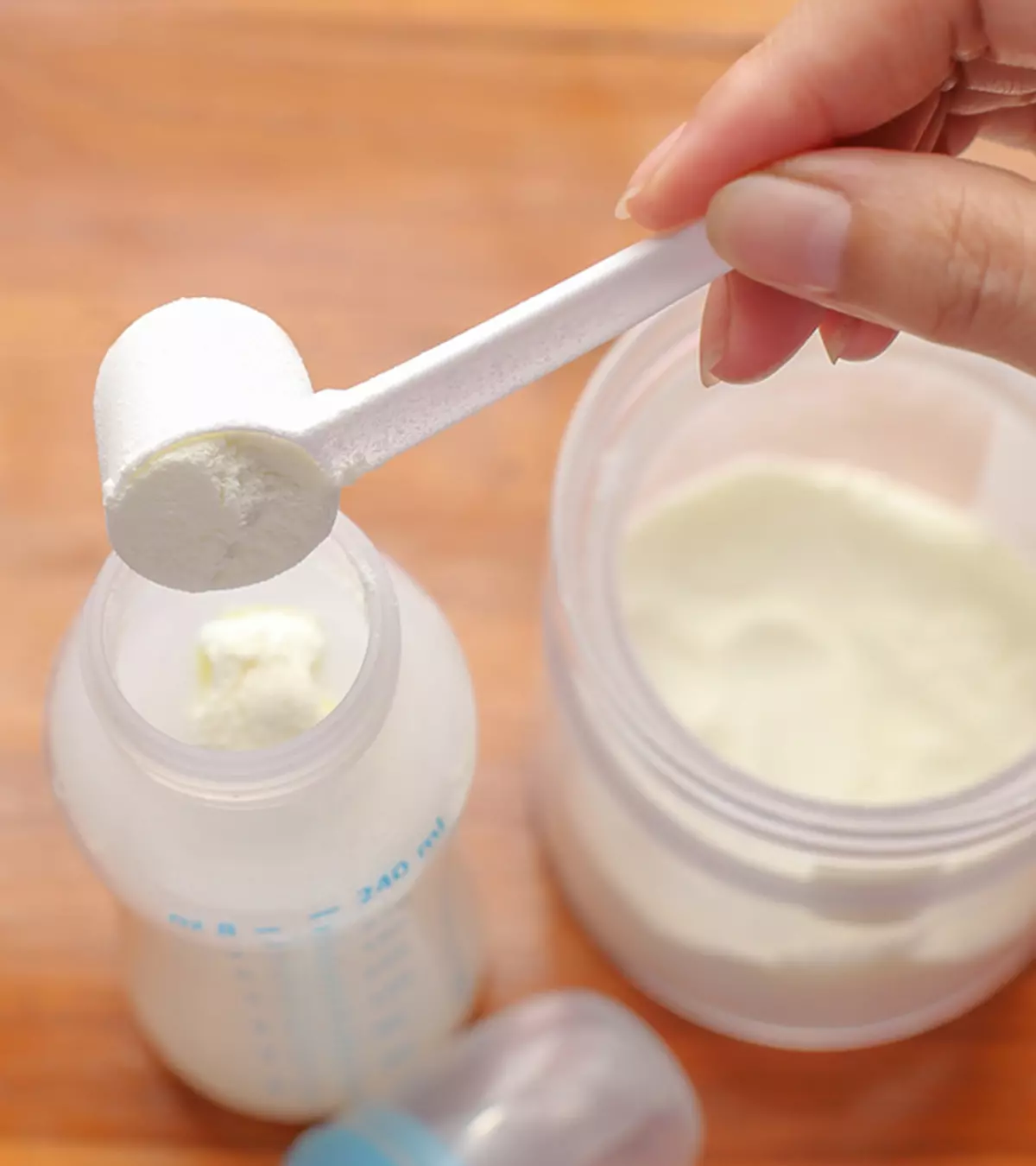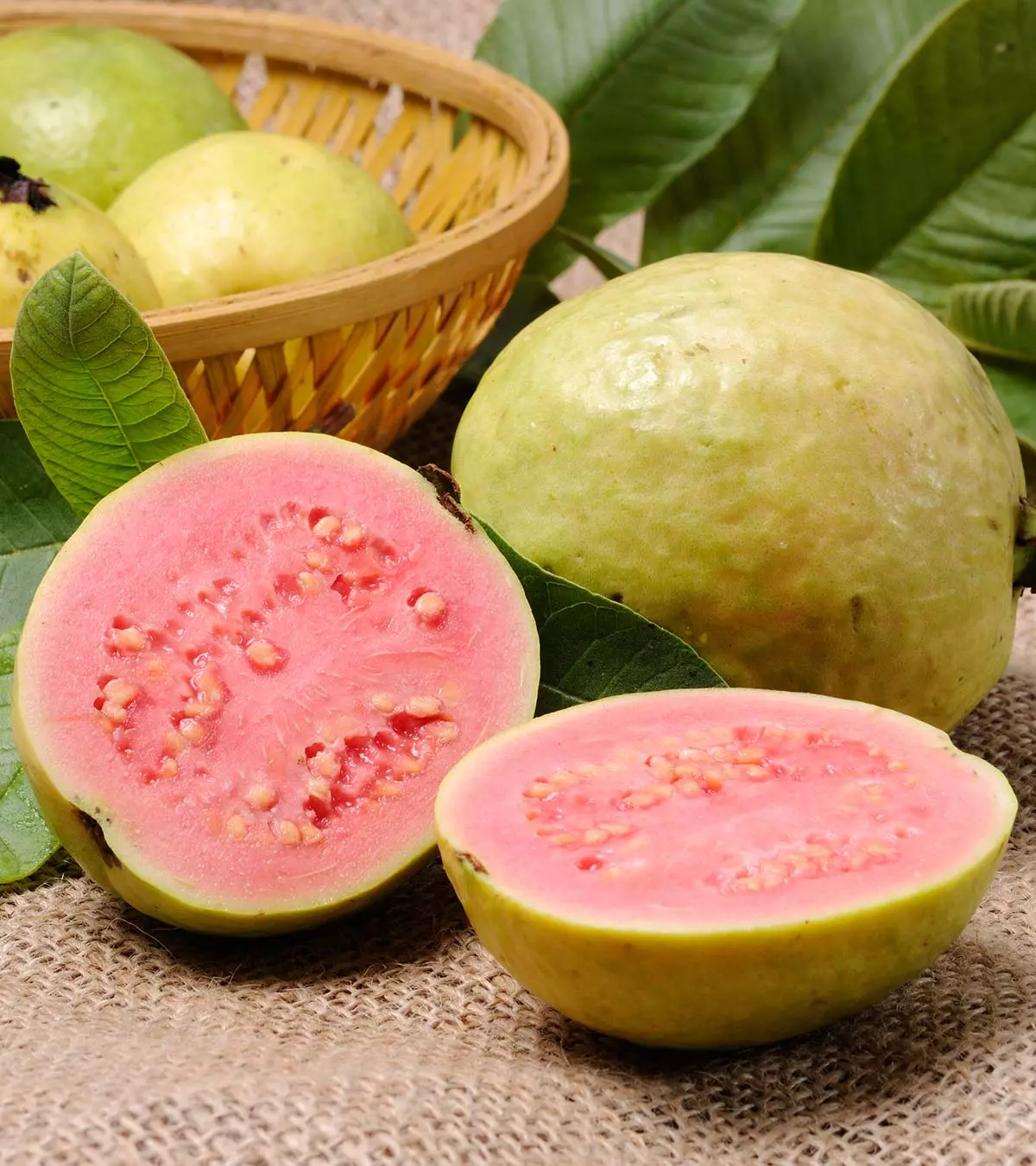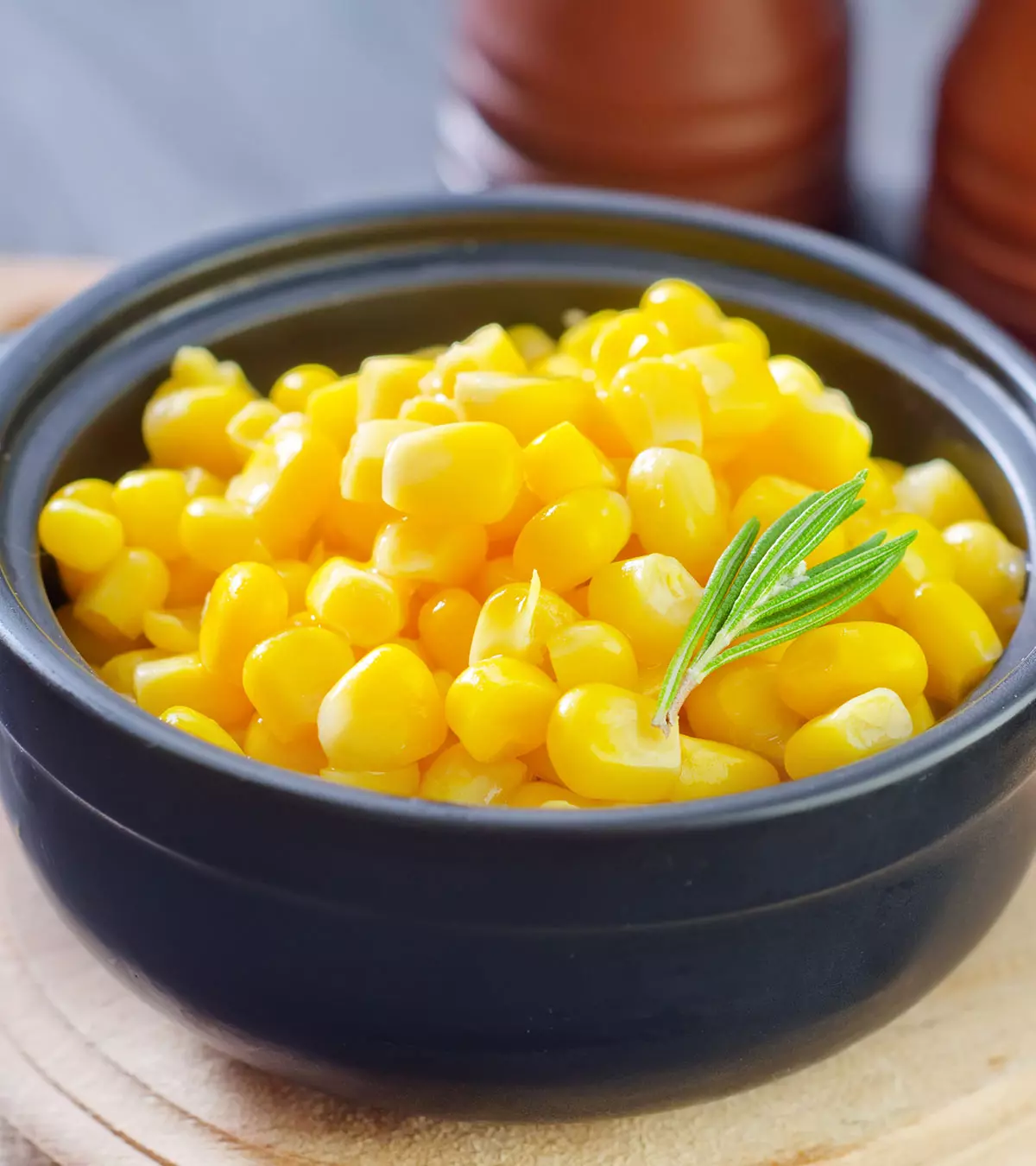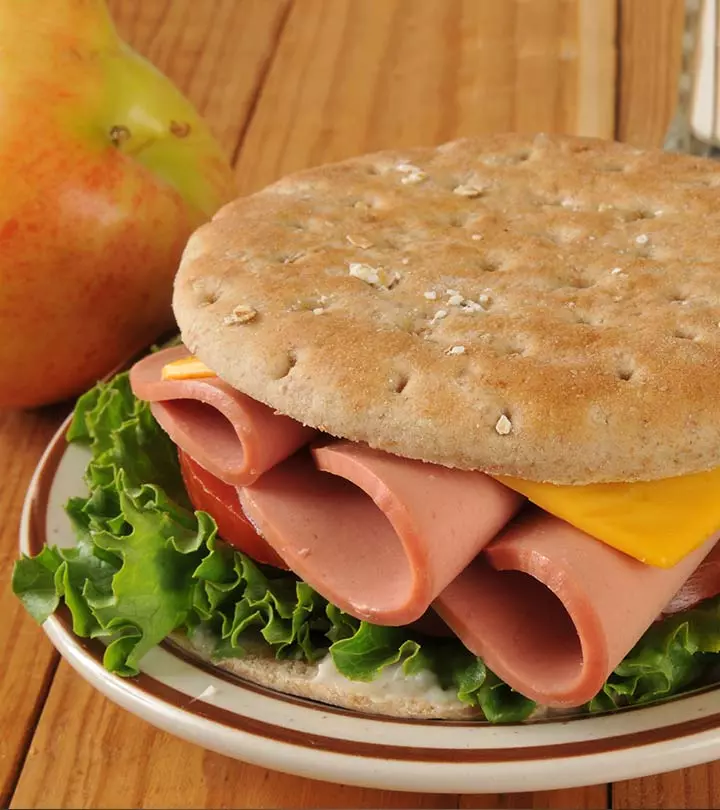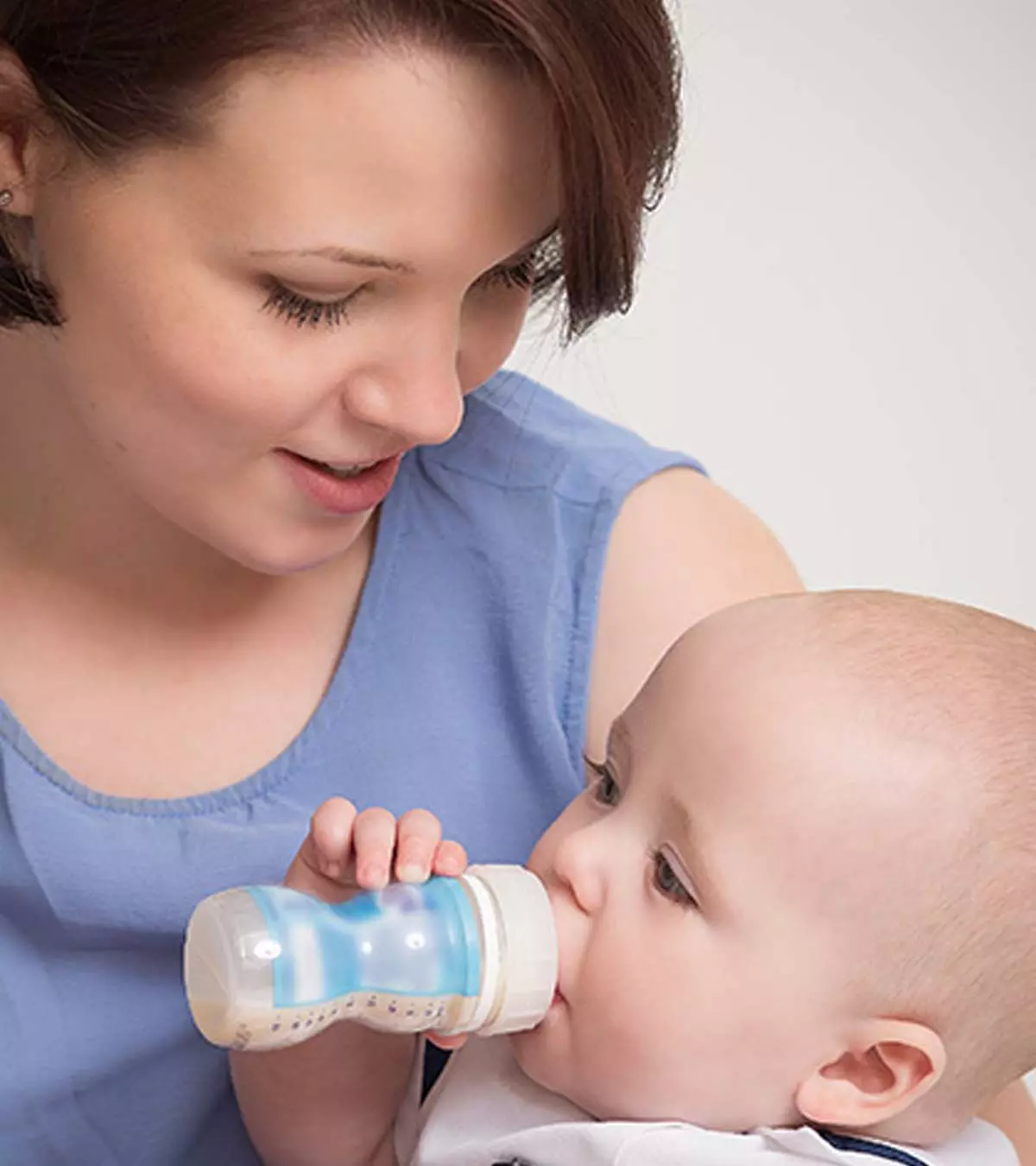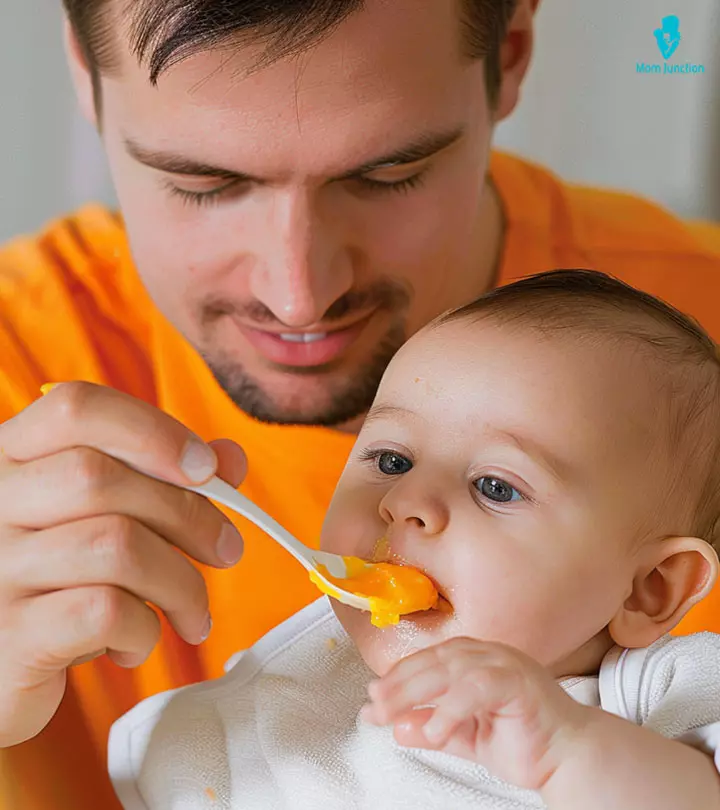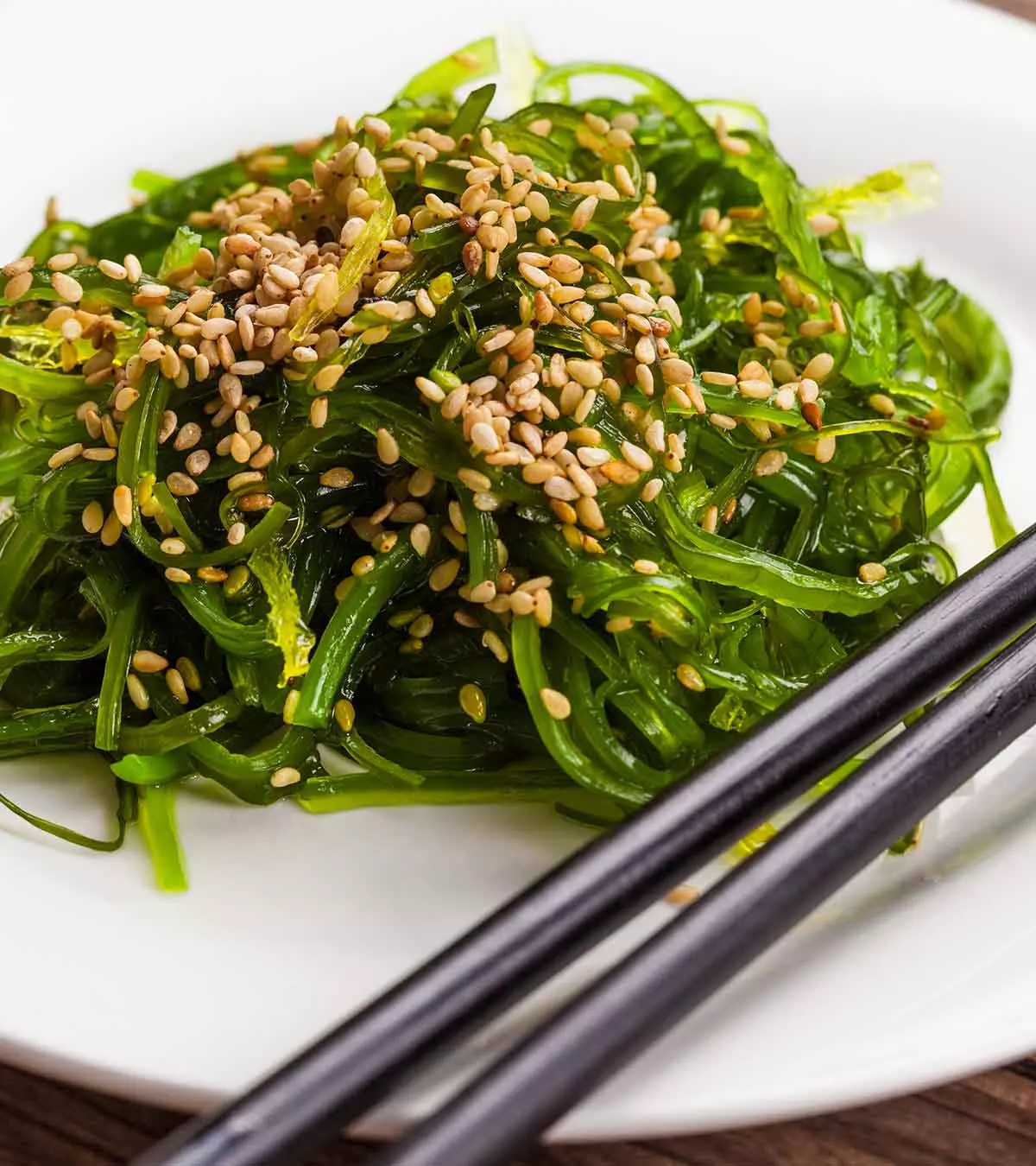
Image: ShutterStock
In recent years, seaweed has emerged as a superfood and has gained importance as a dietary supplement. But, you may not be sure of the safety of seaweed during pregnancy. Pregnant women should exercise caution while consuming it because it can have adverse effects on the growth of the fetus if taken in excess.
Although the right amount of seaweed is believed to be beneficial during pregnancy, you should consult a doctor before deciding to consume it.
Read on to learn about the types of seaweed, their health benefits during pregnancy, and their possible associated risks.
Key Pointers
- Seaweed is a nutritious supplement, but pregnant women should be cautious due to potential fetal risks.
- It is high in antioxidants, vitamins, minerals, fiber, and omega-3 fatty acids, and may aid PMS symptoms and fertility.
- Pregnant women should limit seaweed consumption to one serving per week and consult a doctor.
- Excessive consumption can be dangerous due to high iodine levels and potential heavy metal content.
- Consuming seaweed in moderation during pregnancy can prevent neurological damage and enhance reading skills.
Types Of Seaweed
Edible seaweed is of three types – the green, brown, and red varieties. Green seaweed, also known as Ulva or sea lettuce, is usually used in soups and salads. Brown seaweed again includes many varieties like wakame, kelp, arame, and hijiki. The red type includes the variety of nori that is used in making sushi and dulse. Dulse is a chewy reddish-brown form used to make stews and soups.
Health Benefits Of Seaweed During Pregnancy

Image: Shutterstock
Seaweed is a member of the algae family, and is a part of Asian cuisine. Just 2 tablespoons worth of serving seaweed could actually give your body a good dose of many important vitamins and minerals.
- It has been found that seaweed is a rich source of antioxidants as well, which can protect the body against a wide range of illnesses, particularly arthritisiAn inflammatory condition characterized by swelling, stiffness, and pain in the joints. , celiac diseaseiAn autoimmune condition where the consumption of gluten causes health issues such as diarrhea, stomach pain, and fatigue. , obesity, asthma and even depression.
- A few studies have also found that seaweed could be potentially useful in promoting the normal development of the sexual organs, thereby reducing the risk of breast cancer.
- Seaweed has also been found effective in reducing the severity of PMSiA period before the menstrual cycle in females, marked by symptoms such as mood swings, irritation, and bloating symptoms, and is thought to improve female fertility as well (1).
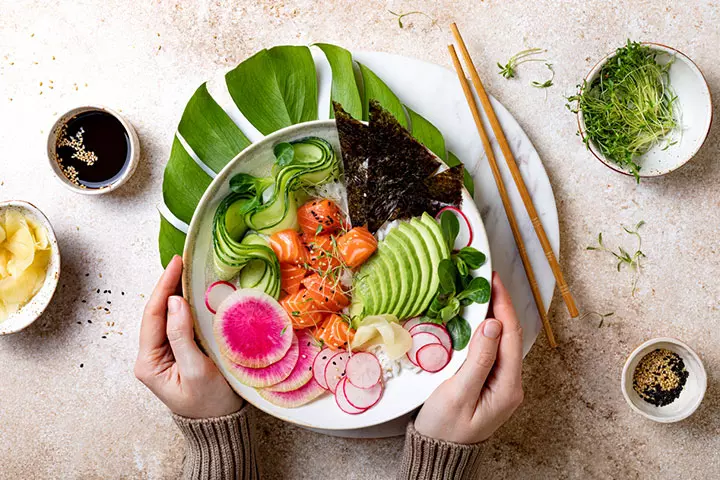
Image: IStock
- Iron is also highly available in seaweed because of major vitamin C content in marine vegetables. Vitamin C helps to absorb and use more iron in the body. It is also rich in calcium, magnesium, folic acid, carotenoids, and DHA. The polysaccharides present in seaweeds also contribute significantly to their health-benefiting characteristics.
- Seaweed is also a good source of omega-3 fatty acids which helps in a baby’s brain development.
- The high fiber content helps treat constipation and also improves digestion ability.
Nutritional Content Of Dried Seaweed
Seaweed is rich in minerals such as calcium, potassium, magnesium, and sodium. These minerals are essential during pregnancy. The following table presents the nutritional value of 100 grams of dried seaweed (2).
| Nutrients | Amount (per 100g) |
| Water | 6.68g |
| Energy | 298Kcal |
| Protein | 31.84g |
| Total lipid (fat) | 4.01g |
| Carbohydrate, by difference | 52.39g |
| Fiber, total dietary | 5.6g |
| Sugars, total including NLEA | 3.04g |
| Calcium, Ca | 372mg |
| Iron, Fe | 24.95mg |
| Magnesium, Mg | 482mg |
| Phosphorus, P | 85mg |
| Potassium, K | 1244mg |
| Sodium, Na | 575mg |
| Zinc, Zn | 3.9mg |
| Copper, Cu | 3.355mg |
| Selenium, Se | 7.3µg |
| Vitamin C, total ascorbic acid | 5mg |
| Thiamin | 1.195mg |
| Riboflavin | 1.946mg |
| Niacin | 6.511mg |
| Vitamin B-6 | 0.334mg |
| Folate, total | 337µg |
| Folate, food | 337µg |
| Folate, DFE | 337µg |
| Choline, total | 64.6mg |
| Vitamin A, RAE | 14µg |
| Carotene, beta | 171µg |
| Vitamin E (alpha-tocopherol) | 5mg |
| Vitamin K (phylloquinone) | 25µg |
Source: U.S. Department of Agriculture
 Nutrition fact
Nutrition factCan Pregnant Women Eat Seaweed?
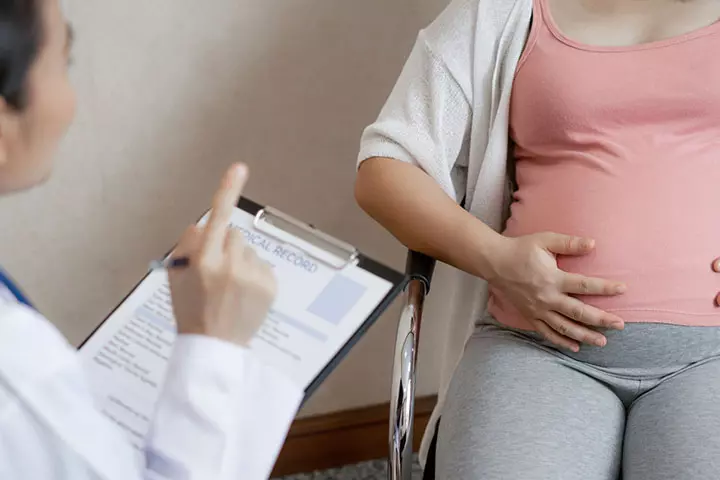
Image: IStock
With its tempting health benefits and the amount of nutrients it offers, seaweed may seem like one of the most healthy foods to eat during pregnancy. However, it is best to limit its consumption during pregnancy and have a talk with your healthcare provider regarding the ideal dosage to be followed.
According to the Food Standards Australia New Zealand, pregnant women must limit their consumption of seaweed to not more than one serving per week. This is because seaweed tends to contain unnaturally high amounts of iodine, which could be potentially dangerous if consumed during pregnancy.
Iodine is an important nutrient that the body needs to function properly, but if taken in excess, it could have a negative impact on the functioning of the thyroid gland. It has been found that pregnant women who consumed excess seaweed during pregnancy had babies that were ill.
Also, there is a possibility of contamination due to the presence of heavy metals. So be cautious! Take your nutritionist’s or your physician’s advice.
It is, therefore, best to stick to moderate consumption of seaweed in pregnancy, so that the excess iodine can be rapidly excreted from the body (4). Seaweed, when consumed in the right amount, could actually be helpful during pregnancy. Thanks to its high iodine content, seaweed could prove to be extremely helpful in preventing neurological impairment in the developing baby, and could positively affect the baby’s reading ability later in life.
An anonymous mother and blogger shares how consuming seaweed during pregnancy helped her maintain her iodine levels. She says, “My doctor insisted on checking my iodine level during pregnancy #3, as he had attended a seminar on the importance of sufficient iodine for pregnant women a few months previously. And every single one of his patients tested since had been extremely deficient.
“I assured him mine would be fine because I eat kombu (a kelp seaweed) all the time, but told him to go ahead and check anyway. When the results came back, he raised his eyebrows and laughed, ‘What did you say you were eating?’ ‘Kombu. Comb-oo.’ ‘OK, well, keep eating it! Your iodine levels are as high as a Japanese woman’s.’ Kombui is probably the easiest sea vegetable (seaweed) to use (i).”
In fact, a study conducted on Japanese women has revealed that the consumption of seaweed could reduce the symptoms of depression during pregnancy to a considerable extent (5).
 Quick fact
Quick factPossible Health Risks Associated With Seaweed

Image: Shutterstock
Seaweed is a package of nutrient-dense food in small sizes, containing some nutrients in quantities that exceed our daily recommended intake. This is why consumption of seaweed on a regular basis could prove to be harmful, particularly for pregnant women.
According to Medline Plus, seaweed, owing to its high concentration of iodine, could be harmful for pregnant women. (6)
Seaweed is often used as a supplement and is believed to improve breast milk supply in lactating women, but daily intake could cause abnormally high levels of iodine in the body, which may in turn, affect the thyroid gland of both the mother and the baby, possibly even causing hypothyroidismiFailure of thyroid glands to produce sufficient thyroid hormones, leading to weight gain, tiredness, skin, and other body changes. in newborn babies. (7)
What’s more, a study has also pointed out a strong association between the consumption of seaweed and a risk of thyroid cancer in women (8).
A Delicious Seaweed Recipe
It is best to stick to minimal consumption of seaweed during pregnancy, if at all. Also, rather than taking vitamin or mineral supplements and taking risks to your health, you can get minimal necessary iodine from seaweed consumption.
Here is a great-tasting seaweed salad recipe from Epicurious that offers a healthy iodine boost. Give it a try.
Ingredients to use:
- Dried wakame seaweed – 3/4 ounce
- Rice vinegar – 3 tbsp
- Soy sauce – 3 tbsp
- Asian sesame oil – 2 tbsp
- Sugar – 1 tsp
- Finely grated fresh ginger – 1 tsp
- Minced garlic – 1/2 tsp
- Tart apple – 1 small one (Granny Smith variety)
- Thinly sliced scallion – 2
- Chopped fresh cilantro – 2 tbsp
- Toasted sesame seeds – 1 tbsp
Preparation Method:
- Soak dried seaweed in warm water for 5 minutes.
- Drain and squeeze out excess water and cut the seaweed into 1/2 wide inch strips.
- Stir all the ingredients mentioned above from vinegar to minced apple in a separate bowl.
- Dice tart apple into 1/4 inch and add to the above dressing along with the seaweed, scallions and cilantro.
- Toss the salad and top it with some sesame seeds.
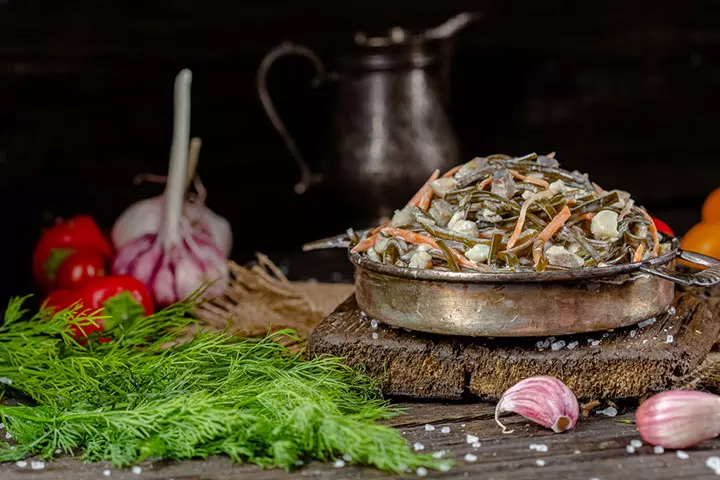
Image: Shutterstock
Frequently Asked Questions
1. Is seaweed high in mercury?
The limited data that is available suggests that seaweed may have moderate amounts of mercury, depending on the location it is sourced from (9).
2. Why does seaweed have a lead warning?
Seaweed has a high concentration of lead, cadmium, and arsenic which are known as toxic metals. Lead is often associated with causing cancer and reproductive harm and hence, contains a warning sign (10).
3. How can I safely include seaweed into my pregnancy diet?
Safe options include nori (in sushi rolls), wakame (in miso soup), and dulse flakes as a seasoning. Roasted seaweed snacks are also a healthy, crunchy choice. Mix chopped seaweed into rice or grain dishes for extra nutrients and texture. Always buy seaweed from trusted sources and wash it well before eating. If you’re taking prenatal supplements, be mindful of your iodine intake, as some seaweeds can have high iodine levels.
Seaweed is a good source of antioxidantsiNatural or synthetic substances that may prevent or slow down cell damage caused due to harmful molecules called free radicals. , vitamin C, omega-3 fatty acids, and fiber. You may consider eating seaweed during pregnancy due to its nutritional value and beneficial effects on digestion and fetal brain development. However, due to its high iodine content and potential adverse effects on the thyroid gland, moderation is advisable to consume seaweed. But, one cannot rule out heavy metal contamination in seaweed, so it is best to include it in your pregnancy diet after consulting a doctor or a nutritionist.
Infographic: Seaweed Types And Why You Should Consume Them In Pregnancy
Seaweeds are a great source of nutrients essential for the mother and the growing baby when consumed in moderation. In this infographic, we shed light on the most common types of edible seaweeds and the various benefits they offer. Illustration: Momjunction Design Team
Illustration: Is It Safe To Eat Seaweed During Pregnancy?
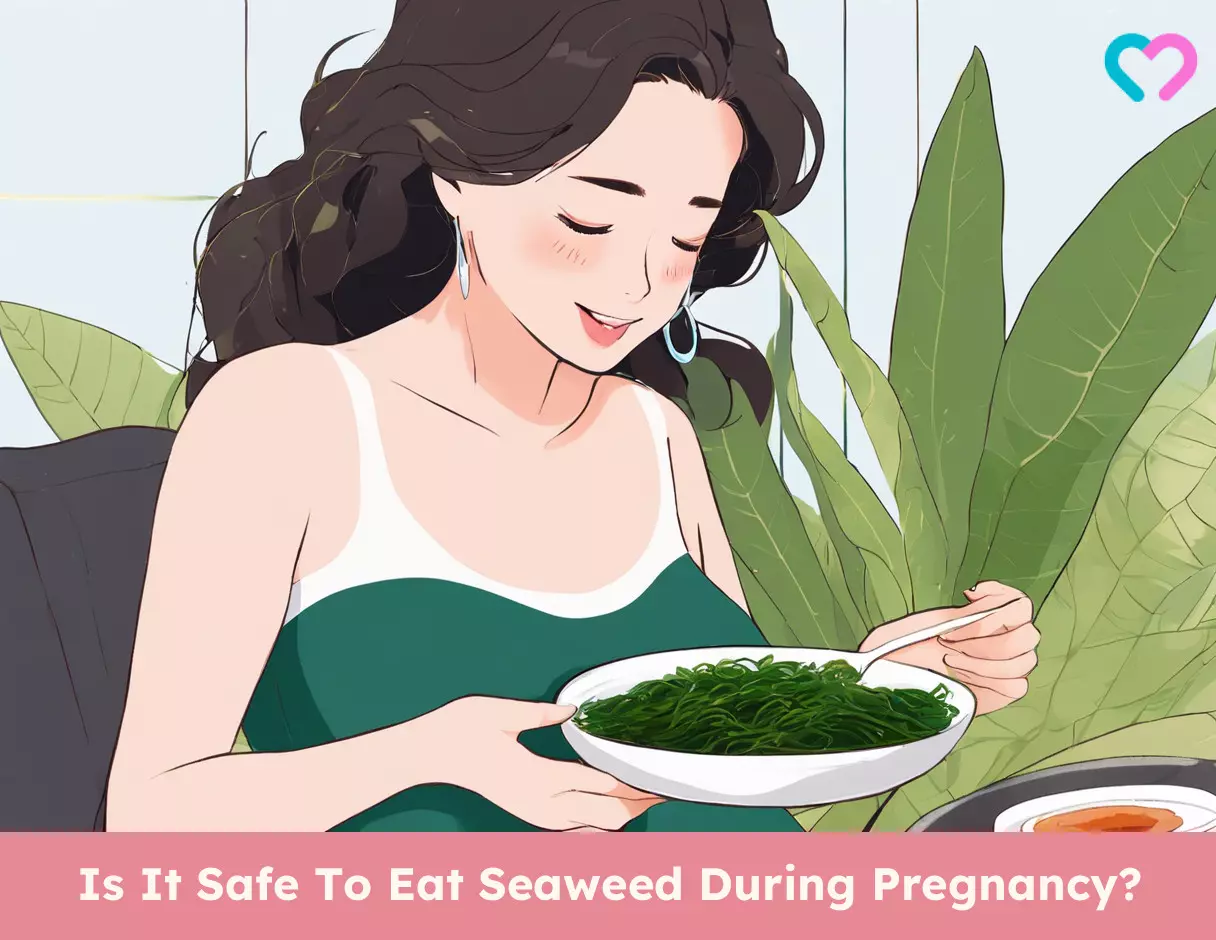
Image: Stable Diffusion/MomJunction Design Team
Personal Experience: Source
MomJunction articles include first-hand experiences to provide you with better insights through real-life narratives. Here are the sources of personal accounts referenced in this article.
i. What the heck is a sea vegetable?.https://breadwithhoney.blogspot.com/2011/05/what-heck-is-sea-vegetable.html
References
- The effect of Fucus vesiculosus an edible brown seaweed upon menstrual cycle length and hormonal status in three pre-menopausal women: a case report.
https://www.ncbi.nlm.nih.gov/pmc/articles/PMC514561/ - Seaweed dried.
https://fdc.nal.usda.gov/fdc-app.html#/food-details/2345512/nutrients - The Science of Seaweeds.
https://www.americanscientist.org/article/the-science-of-seaweeds# - Seaweed.
https://www.foodsafety.asn.au/topic/seaweed/ - Seaweed consumption and prevalence of depressive symptoms during pregnancy in Japan: Baseline data from the Kyushu Okinawa Maternal and Child Health Study.
https://www.ncbi.nlm.nih.gov/pmc/articles/PMC4161851/ - Fucus Vesiculosus.
https://medlineplus.gov/druginfo/natural/726.html - Warning to Pregnant and Breastfeeding Women: Seaweed Soup.
https://www.mhcs.health.nsw.gov.au/publications/9120?collectionfilter=1 - Seaweed consumption and the risk of thyroid cancer in women: the Japan Public Health Center-based Prospective Study.
https://pubmed.ncbi.nlm.nih.gov/22414981/ - Report Of The Expert Meeting On Food Safety For Seaweed.
https://openknowledge.fao.org/3/cc0846en/cc0846en.pdf - Sixty-day Notice Of Intent To Sue For Violation Of The Safe Drinking Water And Toxic Enforcement Act Of 1986
https://oag.ca.gov/system/files/prop65/notices/2019-01265.pdf
Community Experiences
Join the conversation and become a part of our nurturing community! Share your stories, experiences, and insights to connect with fellow parents.
Read full bio of Shivani Sikri
Read full bio of Ria Saha
Read full bio of Swati Patwal
Read full bio of Lorraine Teron











